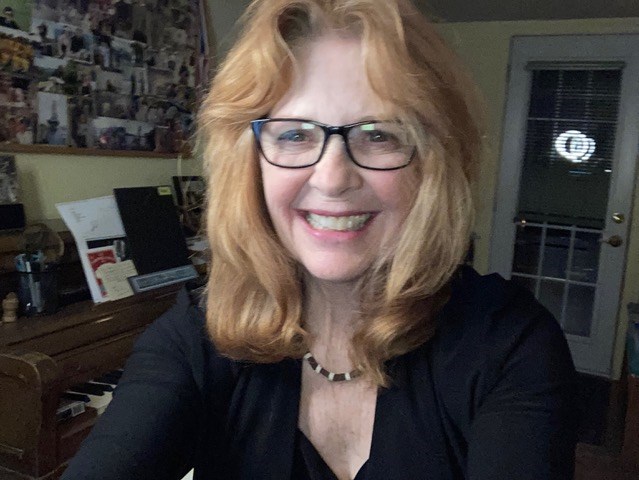
The Academic and the Actress: A discussion of six decades of the Shaw Festival, was held virtually recently between two theatre experts.
The Niagara-o- the-Lake Museum welcomed the ‘academic and the actress’ for a virtual event last week celebrating 60 Years of the Shaw Festival.
Last Wednesday morning, Leonard Conolly and Barbara Worthy sat down in their respective homes for a chat about the Shaw Festival over the past six decades, from its humble beginnings to its present incarnation.
Leonard Conolly, “the Shaw’s resident scholar and literary advisor of the Bernard Shaw estate, joined Shaw ensemble alumna member and NOTL Museum staff member Barbara Worthy, “to celebrate, debate and remember 60 years of one of the world’s great theatre companies,” says Worthy.
In his role as the academic on the panel, Conolly has substantial scholarly credentials. Worthy lists his many accomplishments as “the past president and vice-chancellor of Trent University, holds degrees from four universities around the world, was professor of English at the Universities of Saskatchewan, Alberta, Guelph, and Trent, and has authored more than 60 articles and 20 books, including many about Bernard Shaw. He also founded the theatre archives at the University of Guelph, the largest collection of Canadian theatre archives available, and one of the world’s most important collections of Bernard Shaw material.”
In her role as the actress, Barbara Worthy has many accomplishments of her own. At the Shaw Festival, she has worked as an actor in the former artistic director Christopher Newton company, directed and wrote under former artistic director Jackie Maxwell, who followed Newton, and taught during ;the time of current artistic director Tim Carroll.
In addition, she produced the Bell Canada Shaw Festival Series for a decade with CBC Radio. She now works for the NOTL Museum as the visitors and member assistant and has produced a long list of historical documentaries, with a special focus on the Niagara region.
Rather than the museum’s typical lecture format, Worthy and Conolly engaged in a guided conversation for the virtual presentation, starting with a discussion of Bernard Shaw’s controversial political views. Conolly explains that although those views were not initially a factor in the inception of the Shaw theatre being established in Niagara-on-the-Lake, they have since been challenged by groups opposed to his anti-democratic plays and his support of former leader of the Soviet Union, Joseph Stalin. “We must separate Shaw the man, the political thinker, from Shaw the playwright,” Conolly concludes. “What we celebrate at the Shaw are the plays,” he said, and if you start banishing playwrights and novelists not on the basis of
their creative work but on the basis of their politics, “you are on a very slippery slope.”
The two discuss the festival’s founders, Brian Doherty and Calvin Rand, Doherty as a former lawyer and playwright who retired to NOTL and wanted to “energize” the sleepy little town with his commitment to Shaw as a playwright. With Rand’s financial backing, they were able to slowly bring Doherty’s vision to fruition.
A cottage industry of sorts sprang up around the festival with people using their own sewing machines to make costumes and bringing in items from their houses for props.
The community also played a part either directly or indirectly in supporting the festival. Conolly told a story about Rand begging residents up and down Queen Street to supply fans to cool down the overheated Court House theatre. The community participated indirectly, he adds, by supplying additional ambiance to the inaugural production of Shaw’s Don Juan in Hell in the form of screaming from a detoxifying overnight resident from the depths of the town jail, downstairs in the building.
The oral stories about the Shaw Festival in the lecture were both informative and entertaining. Worthy and Conolly continued to reminisce as old friends sharing stories and anecdotes. They followed the history of the festival chronologically through the artistic directors, from Barry Morse, Newton, and Maxwell to Tim Carroll, and their contributions, challenges and innovations. They also discussed other past contributors essential to the success of the festival and the effect of this success on the town.
Their goal, said Worthy, was to “reminisce on the highs and lows of the Shaw Festival, its enormous impact on NOTL, and the personalities and performances that have made it one of the world’s great English-speaking theatre companies.” The goal was accomplished, but as with all great performances, left the viewer a little hungry for more. Worthy told The Local she and Conolly would like to continue their collaboration in a possible series of articles or a booklet with more stories and research about those early decades of the Shaw.
Worthy also talked to The Local about the personal impact the Shaw Festival has had on her life. “I wouldn’t be here today if Christopher hadn’t hired me . . . wouldn’t have married, and had my son . . . wouldn’t have gone on to the CBC. The son part is the big one. The Shaw was fundamental to my career, and I believe it’s given back not just to me, but to the entire community, many times over.”
She is “astonished, amazed” at the Shaw Festival turning 60. “All these years! Such an accomplishment, thanks to visionary leaders, fine management, and artistic triumphs,” and adds that she is “proud to have been a small part of its history.”
To tune into the recording of this event from the Museum’s website visit www.notlmuseum.ca or directly from YouTube at https://www.youtube.com/watch?v=czuoWWwaNB0.


